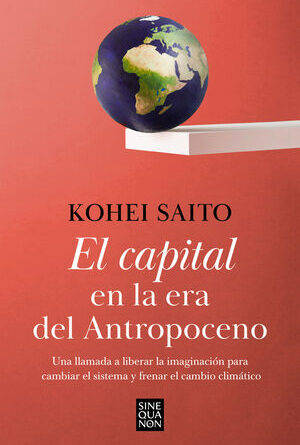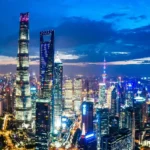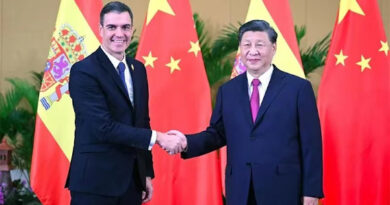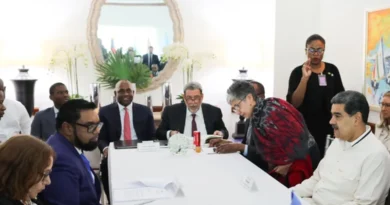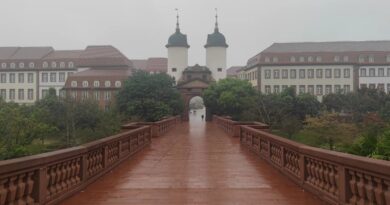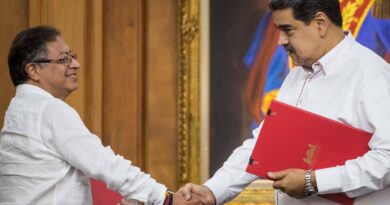Marx as a solution to the climate crisis
PASCUAL SERRANO
“Are you taking any action against global warming? Have you bought ecological bags to reduce the use of plastic ones? Do you always carry a canteen to avoid buying drinks in PET containers? Have you changed your old car for a hybrid one?
I will tell you clearly: only with that kind of well-intentioned measures you will not get anywhere; what's more, they could even be counterproductive”.
With these provocative words begins the book by the Japanese Kohei Saito "Capital in the era of the Anthropocene" (Editions B, 2022), an era in which the footprint of human activity completely covers the face of the Earth. Saito's irreverent theory is that the UN Sustainable Development Goals are the modern version of the opium of the people, which Marx denounced in 1844.
The ecological crisis opens a debate in which the positions can cover such a wide spectrum that we could even say that they are incompatible. The leaders and governments know that, depending on the positions they adopt, they can win the sympathy of the citizens or, on the contrary, sink. It is essential to decide which social group is going to have to adopt the necessary measures in their way of life to save the planet, what degree of obligation will these measures have, with what fiscal policies will governments support them and what incidence do they have in a global world? , because it is the only way to be effective. Hence the debate is served.
This book by Kohei Saito presents two great novelties in his analysis. One, to remind us that the current economic model is based on looting and transferring environmental costs to the South. He speaks of the “outsourcing society” as rich countries enjoy their wealth thanks to the sacrifice of the South. Indeed, this reading is nothing new, the original thing is to denounce that now they want some environmental measures adopted in the north (electric cars, recyclable bags and solar panels on our roofs) to soothe our consciences to the point of presenting ourselves as the world vanguard in environmental sustainability and the fight against global warming. And we also believe that the bad pollutants are countries like India, Pakistan, China, Indonesia or the Philippines. The second, to propose a new perspective of Marx's thought in the shadow of new unstudied documents. We will see it later.
Another of the mantras that we are presented with every day is the so-called Green New Deal, the set of political proposals that includes fiscal stimuli and large-scale public investments to promote the use of renewable energies or encourage the use of electric cars. The question is whether this is saving the planet or a new strategy of capitalism to reactivate new consumption and, on top of that, make us believe that we are saving the planet. Something similar to recycling, which thanks to it, they have made us happily throw away containers, boxes, jars and bottles because, supposedly, a company will recycle it. Of course, previous millionaire payment of the public administrations.
Kohei Saito's thesis is that, under capitalism, there is no solution to climate change. His argument is that the optimization of energy consumption has the consequence of generating a new production and spending that cancels out the savings in the first place. For example, the savings in electricity achieved with solar panels can lead to greater energy spending on other products which, in turn, means new production by companies and new spending. Another example is that of electric cars, presented as an environmental panacea. From the outset, a large amount of public money is being allocated to subsidize companies and customers of those cars that, in reality, are not exactly from the humblest classes. Also, resorting to electricity as a fuel does not mean that it is an environmental solution, it remains to be seen how that electricity is created. For example, we now know that Germany is reviving its coal consumption to power its modern electric cars. Finally, for the manufacture of automobiles, fossil fuels, CO2, are emitted and their batteries require finite and polluting metals. And one last piece of information, the number of electric vehicles will go from the current 2 million to 280 million in 2040; however, according to estimates by the International Energy Agency (IEA), the percentage reduction in global CO2 emissions will be a ridiculous 1%.
Let's not forget that the voracity of capitalism allows it to take advantage of any situation. If there is an epidemic, they do business with vaccines; if there is a war, with the sale of weapons; if there is a plague of locusts, they will do business with some insecticide, and if there is an environmental crisis, they will also see a business opportunity.
The other mantra of the first world is the call to decrease as a solidarity and global commitment of all humanity. In response I recommend these words from the Indian historian Vijay Prashad: “They like to say that we are in this together, but we are not in this together. (...) They say they are worried about our future, what future? Children on the African continent, in Asia, in Latin America do not have a future, they do not have a present. They are not worried about the future, they are worried about the present. Their slogan is 'we care about the future'. What future? A catchphrase of the western bourgeois middle class. You have to worry about now. 2.700 billion people can't eat and you tell people, 'Cut down your intake.' How does that sound to a child who hasn't eaten in days?" Indeed, as Saito also points out, "in the world there are billions of people without access to light and drinking water, who cannot study or eat properly and for whom economic growth is absolutely necessary."
Although degrowth sounds critical of capitalism, deep down, it does not differentiate between rich and poor, it puts us all equally in the same responsibility and asks all of us the same.
It is for all of the above that our author proposes to fight capitalism in the shadow of Marx's thought, reanalyzed with new documents of his works, little studied until now. According to Kohei Saito, the thought of the last stage of Marx constitutes a key contribution to survive the climate crisis of the Anthropocene. “A compilation of new complete works by Marx and Engels, with a huge number of unpublished drafts and notebooks, allows us to reveal the ecological critique of Marx's last stage of capitalism, hitherto unknown”, says Saito.
These documents show that Marx, in his last stage, abandons his approach to the determinism of the productive forces (the increase in productive capacity as the motor of history) and, therefore, his Eurocentrism and remakes his historical materialism. For this he investigates communities of non-Western and other pre-capitalist societies. And, how could it be otherwise, "what is needed in this era of climate crisis is communism", that is, the recovery of the common and use value against the exchange value imposed by capitalism, a rethinking of the capitalist conception of GDP, correcting inequality. And, Saito adds, since "communism is often misinterpreted as an ideology that gives preference to equality, sacrificing freedom for it", he also reflects on this in his work, distinguishing between the kingdom of necessity and the kingdom of freedom.
His proposal, therefore, is a degrowth communism that will solve the climate crisis: “In the era of climate change, more than a change in policies is needed. What is needed is a transformation of the very social system. The radical abundance that is achieved by fleeing capitalism and making degrowth a reality is the true counterproposal of the late Marx.

